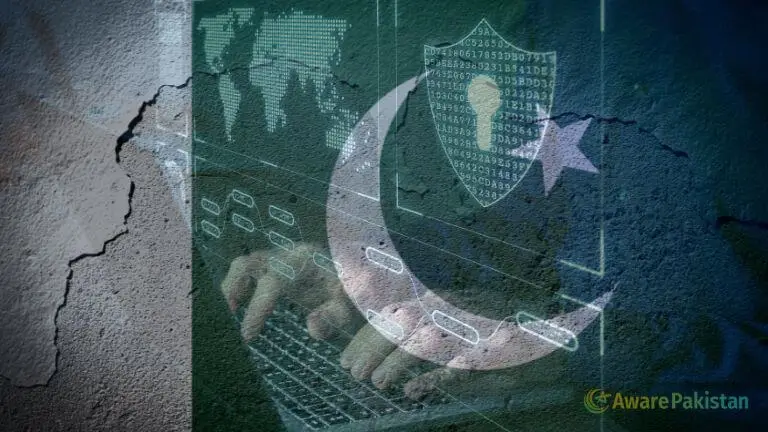Pakistan is under constant cyber threats from hostile nations seeking to disrupt our financial, defense, and communication systems. The rise of cyber warfare has transformed the battlefield from physical confrontations to digital invasions, where sensitive data and critical infrastructure are prime targets.
From hacking attempts on military databases to large-scale disinformation campaigns, cyber warfare is a tool used to destabilize nations, and Pakistan is no exception.
The country has been subjected to frequent cyber intrusions, primarily from adversarial states, with India being one of the key players in these attacks. Over the past decade, Pakistani institutions have faced hacking attempts on government portals, financial institutions, and military networks. These cyber offensives aim not only to steal sensitive information but also to disrupt essential services and create panic among the public.
Several documented cases have shown attempts to breach Pakistan’s power grids, disrupt banking systems, and spread misinformation through fake social media campaigns designed to undermine trust in state institutions.
The scale of cyber threats is further exacerbated by the rapid expansion of digital connectivity in Pakistan. With the increasing reliance on online transactions, cloud storage, and digital communication, vulnerabilities have multiplied. Unfortunately, Pakistan’s cybersecurity framework remains underdeveloped compared to global standards. While some efforts have been made to counter cyber threats, they remain insufficient in the face of increasingly sophisticated attacks.
The lack of a comprehensive national cybersecurity policy, coupled with inadequate investment in digital defense mechanisms, leaves the country exposed to cyber espionage and sabotage.
One of the most concerning aspects of cyber warfare is the spread of disinformation through digital platforms. Fake news, doctored videos, and manipulated narratives have been used as tools to mislead the public and create internal discord. Cyber propaganda targeting Pakistan has been orchestrated through coordinated efforts by foreign elements seeking to weaken national unity.
These campaigns exploit social media algorithms to push divisive content, influencing public opinion and eroding trust in institutions.
To effectively counter these cyber threats, Pakistan must take decisive and immediate steps to strengthen its cybersecurity landscape. Government-backed cybersecurity initiatives are essential to develop a robust digital defense strategy.
Establishing a specialized cyber command unit within the armed forces and intelligence agencies would ensure a proactive approach in dealing with cyber threats. Additionally, collaboration with tech experts, ethical hackers, and private cybersecurity firms can help in devising sophisticated countermeasures against cyber intrusions.
Legislative reforms are also necessary to address cybersecurity challenges. Existing laws need to be updated to tackle emerging cybercrimes, including hacking, data breaches, and cyber terrorism. Strict enforcement of cybersecurity regulations across public and private sectors will help create a resilient digital infrastructure.
Public awareness is another critical aspect of national cybersecurity. Educating citizens about safe online practices, the risks of cyber espionage, and the importance of data protection can significantly reduce the effectiveness of cyber attacks.
Cybersecurity training programs in educational institutions and workplaces should be introduced to build a digitally aware society capable of identifying and mitigating cyber threats.
Cybersecurity is no longer a choice—it is a necessity for national defense. The unseen war on Pakistan’s digital infrastructure demands urgent attention, and failure to act now could have catastrophic consequences for the country’s security, economy, and sovereignty.
As technology continues to advance, the battlefield will only become more complex, making it imperative for Pakistan to invest in its digital defense today to secure its future.


